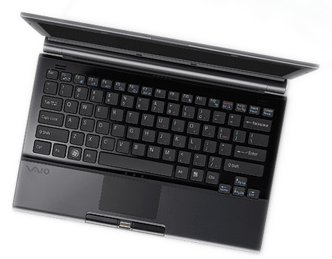Sony NGW-TZ, the pretty subnotebook that doesn’t wanna be
Monday, July 30th, 2007
For some time I keep an eye on normal PC laptops as the Mac world degenerates more and more to real junk quality. Most annoying right now is the high-frequency noise of the MacBook that is killing my nerves while I try to think about the innovative code and algorithms in our company and the ongoing battery issues that even sometimes keep the MacBook from powering on at all and all the other tiny details that are imperfect.
Now the Sony TZ series comes quite near to a good ultra-portable. Of course the CPU of the 1.1kg device only runs at 1 or 1.2 GHz (depending on how much money you have to spare), but that’s pretty fine for my normal business, programming tasks with the resouce efficent Linux kernel anyway (Vista anyone ?). But the Sony TZ series has some extremly annoying design bugs that really keep me from grabbing one:
- no digital video output, no DVI nor HDMI nor Display Port - only good old VGA
- glossy finish exactly where you touch it all the time: the keyboard area
- as usual for Sony, the network port is mounted upside down. You have to lift the device to un-plug the network cable while on most other devices on the world you can comfortable press the RJ-45 nipple from the top.
- superflous, sparkling media keys on the front side
- and if you ever use Windows (thanks God I don’t) you get ugly black/white, “back to the 80s” on-screen notifications on brightness and volume change (as it was for previous Sony devices aas well)
The rest of the sub-notebook is really pretty neat, obviously because Sony was influenced by the MacBook design and nearly copied the keyboard 1:1 … :-)
However last but not least comes the price tag, and starting at 1.999 € (in Germany) for the entry model, over 2.699 € - for the model which has a black display cover, comes with 2 GB instead of 1 GB memory, 100 GB instead of 80 GB hard-disk and a finger print reader - up to 2.899 € for the top model - which comes with a 1.2 GHz (instead of 1 GHz) Core 2 Duo ULV CPU. Last but not least for 2.999 € you can get a 32 GB SSD (solid state disk) extra, special, ueber edition, … These prices are just insane. Other people get a whole car for that money!
And even despite the insane price I even still considered purchasing one (the least expensive one that is), but well - no digital video output to connect a high-definition display on my desk really kills the whole baby.
